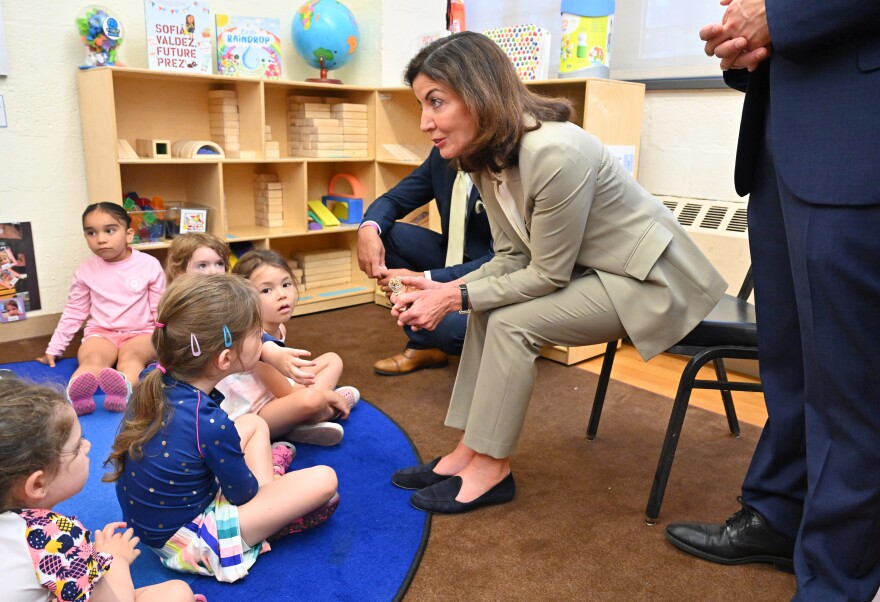The report by the Schuyler Center for Analysis and Advocacy finds child poverty in New York continued to exceed national numbers in 2023, two years after the state’s passage of the Child Poverty Reduction Act.
Director of Policy Dede Hill says poverty is higher in certain counties, including Rockland, the Bronx, and Franklin. It’s highest in mid-sized cities, reaching 46 percent of kids in Syracuse, 42 percent in Binghamton, and 41 percent in Troy and Rochester.
“We always say allowing children to experience poverty is a policy choice," says Hill. "Leaders can make choices that can have a quick and significant impact on child poverty.”
The federal poverty line is $31,200 a year for a family of four. The CPRA aims to reduce child poverty in New York by 50 percent by 2031, but Hill says the state ranks 40th in the nation on the issue.
As part of her State of the State, Governor Kathy Hochul has proposed multiple plans to address the rising cost of living in New York. The Democrat wants to nearly triple the child tax credit and provide free breakfast and lunch at all public schools. Hill says tax credits are a key tool in reducing poverty, and she appreciates that Hochul’s plan would remain open to immigrant families and grant the maximum credit to those in poverty. But she stresses it’s a first step.
“There’s a lot that we are celebrating about this proposal," Hill adds. "Ultimately we’re looking to build towards proposals that were included in the Child Poverty Reduction Advisory Council’s recommendations that came out just a few weeks ago. They propose a larger credit increase which would have a much more significant impact.”
The Schuyler Center report includes its own policy recommendations on everything from childcare to healthcare. Analyst Bridget Walsh says New York’s Medicaid and Child Health Plus programs do a decent job of providing health insurance to low-income families, but that doesn’t mean they’re getting the preventative care they need.
Walsh says dentist appointments often fall through the cracks, in part due to a shortage of dentists in the state. She says only 43 percent of children on Medicaid in 2023 had gone to the dentist for a basic, preventative cleaning in the past year.
“Early childhood oral disease impacts not only their health, but it affects their ability to eat properly. It affects their behavioral health," Walsh explais. "We really want to make sure that even in pediatric care, children are being assessed for oral disease."
The report recommends the state increase reimbursement rates for dentists. On a similar note, it calls for higher wages for daycare workers, easier access to childcare assistance, and a framework for universal childcare.
Analyst Crystal Charles says low-income families, especially those of color, are more likely to face investigation from child protective services for allegations of child abuse or neglect. Charles says 76 percent of these investigations turn out to be unfounded — just because a family is food insecure doesn’t necessarily mean they are abusing their children — but instead of connecting them to resources, Charles says families are subjected to months of home searches, interviews, and even separation.
“This is something that has gone one for many decades," says Charles. "One of the solutions we’re really excited about is called the ‘Child Family and Wellbeing Fund.’ It would direct state funds directly into some of these historically-impacted communities…and families would be able to direct funds where they would have the greatest impact.”
Overall, the report finds the “State of New York’s Children” is not strong for many. But President and CEO Kate Breslin says there's a lot New York can do.
“When the economy goes south a little bit [and] it recovers, child poverty doesn't necessarily recover with the economy," says Breslin. "So it's not going to just happen unless we really act with intention around, 'What are the ways that we can reduce the rates of child poverty?'"
You can read the full report here.


